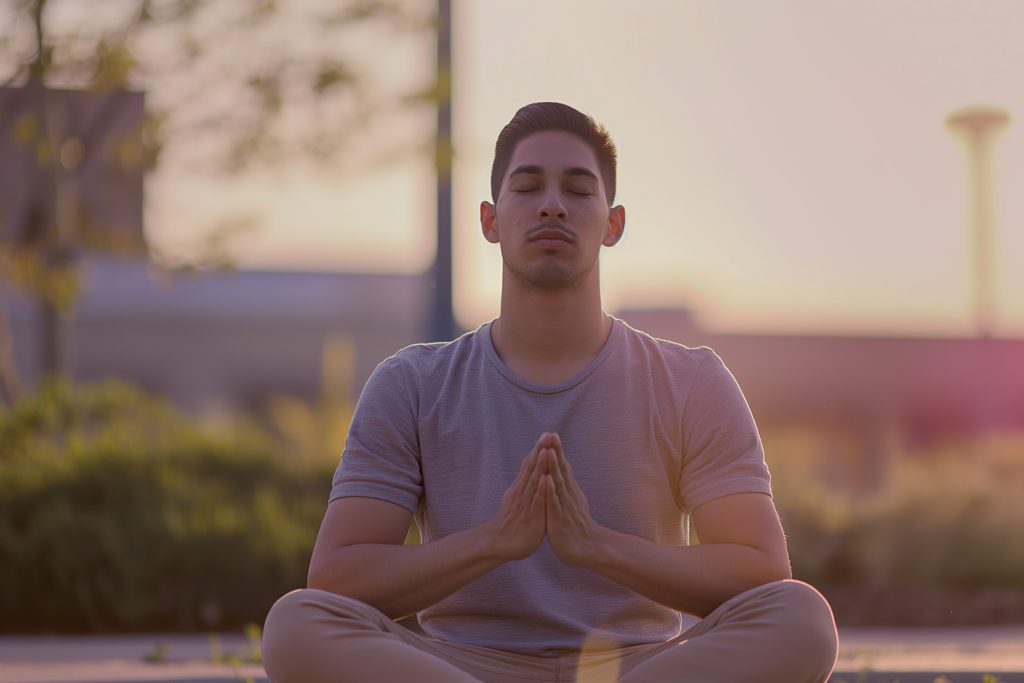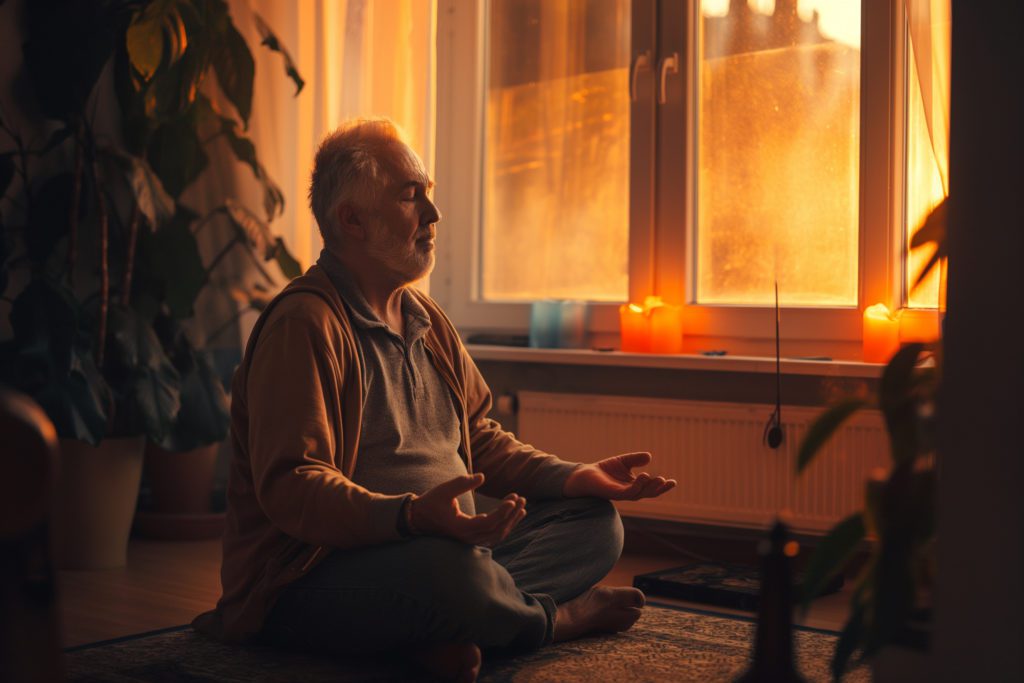
Mindful Movement: How Gentle Exercise Can Prepare the Body for Sleep
One of the most effective sleep-favoring strategies is mindful movement, which promises a quality night experience with only a few minutes of your time.

With the breakneck routine of the modern age, the restful night's sleep almost seems like a dream. Around 30% of the general population today suffers from persistent sleep issues, most commonly insomnia. In times like these, there is an urgent need for a strategy that can help you get a restful sleep experience like never before.
Fortunately, science has been way ahead of us. It has introduced several sleep-favoring strategies so far. One of the most promising is mindful movement. According to a clinical trial, taking only a few minutes to settle your body and mind can help you have a quality night experience. Want to know more about this technique and its promising benefits? Read ahead.
Through this article, we will help you incorporate mindful movement into your everyday life with a single goal: restful sleep.
A Small Brief About Mindful Movement
Mindful movement involves a combination of exercises performed with sheer attentiveness and focus. In contrast to high-intensity exercises such as HIIT, it uses a specific set of light exercises to create a soothing effect on the body. Some important ones are yoga, tai chi, and stretching movements.
Research has indicated that mindful movement significantly boosts mental and physical health. For example, a review of credible clinical studies revealed that people who engaged in mindfulness experienced reduced anxiety and better sleep quality. These gentle exercises can be incorporated into a bedtime routine to prepare your body and mind for sleep.
The Science Behind Exercise and Sleep
Exercise is already well-known for its benefits for physical health. However, besides physical wellness, the long tail of benefits of mindful exercises also encompasses sleep. It has been found that exercise helps increase both the quality and duration of sleep.
A study reveals that people who exercise regularly experience better sleep than those who do not. This benefit is attributed to the release of endorphins, which we can simply call "calming hormones." These hormones are known to alleviate stress and anxiety and thereby improve sleep.
Another study conducted in the Journal of Clinical Sleep Medicine in 2018 proved that moderate exercise decreases the time required to go to sleep and increases the time spent in the deeper stage of sleep.
In the same way, mindful movement, a combination of traditional exercise and mindfulness practices, can improve sleep quality even further. When such stretch exercises are done from time to time, they help reduce the stresses in the body and thus open the bed for natural, healthy sleep.
Types of Gentle Exercises for Better Sleep
If you want to reap the improved sleep quality benefits of mindful movement, you must make the right exercise choices. But we are not leaving this complex task to you. Here are some recommended gentle exercises:
Yoga
Yoga is the art of coordinating specific exercises, which include body positions and movements, deep breathing, relaxation, and meditation. Relaxation is one of the best ways to ease stress in any environment. According to a study, doing yoga for six to eight weeks enhanced participants' sleep quality and duration.
Tai Chi
This Chinese martial art dates back to the mid-17th century. It involves slow, flowing movements with deep breathing. Research conducted in Sleep Journal showed that Tai Chi practices focused on older people provided them with increased sleep quality and reduced insomnia symptoms. Tai Chi can also be taken in the evening as a general body exercise to help relax the mind and get rid of body fatigue, enabling one to sleep.
Gentle Stretching
Some stretching exercises can easily relieve tightened muscles and increase blood flow. Stretching in the evening makes muscles less stiff and prepares one for a relaxing night. For maximum benefits, you should practice these exercises daily for 20- 30 minutes.
Consistency is the key.
Doing mindful movement for a single day will not benefit you in the long run. Instead, making it a routine can help your body relax and fall asleep effortlessly. Additionally, tracking your sleep quality with apps like Pillow can provide you with personalized insights and help you optimize your routine.
Tips to Make Mindful Movement a Part of Daily Routine
Obviously, only learning about the benefits of mindful movement will not do you any good. You need to move one step ahead and take the requisite steps to make this incredible sleep-favoring activity a part of your daily routine. Read ahead for a little brain-boosting exercise to help you choose the right routine.
First of all, think of all the gentle exercises. Yoga, tai chi, stretching, or any other that you may have in your mind. The best thing about these exercises is that anyone can perform them. You just have to choose the one that best suits your needs and preferences.
For example, suppose you also experience muscle aches in addition to poor sleep quality. In that case, stretching can help a lot to relax your muscles and put your pain at ease. Research a little and watch videos on how each exercise is performed and what their unique benefits are. Then, decide what suits you the most.
Once you have decided on the exercise, it’s time to make a schedule. You have to give 20-30 minutes of your day at least five times a week to these gentle exercises for maximum benefits. Find a quiet, comfortable space free from distractions. We recommend dimming the lights and even playing soothing music if that helps.
How to Be Consistent?
Maintaining a regular mindful movement routine can be challenging, but these tips can help you stay motivated.
Set Clear Goals
Define what you want to achieve with your mindful movement practice, such as improved sleep or reduced stress.
Track Your Progress
You can either use a journal or an app like Pillow to monitor your sleep patterns and see the benefits of your practice.
Find a Partner
We recommend exercising with a friend or family member. Doing this can provide accountability and make the routine more enjoyable.
Stay Flexible
Allow yourself to adjust the routine as needed to keep it interesting and aligned with your needs. By staying motivated, you can consistently enjoy the benefits of mindful movement for better sleep.

Written by
Dr Aqsa
As a Medical Doctor, Dr Aqsa, uses her knowledge to craft complex medical information that is understandable to the general public. For years, she has tried to improve health literacy and empower readers with valuable health knowledge through her articles, blog posts, and educational materials.
Download Pillow
Get help
Press & News
Legal
Connect
X (Twitter)
Company
Copyright © Neybox Digital Ltd.



